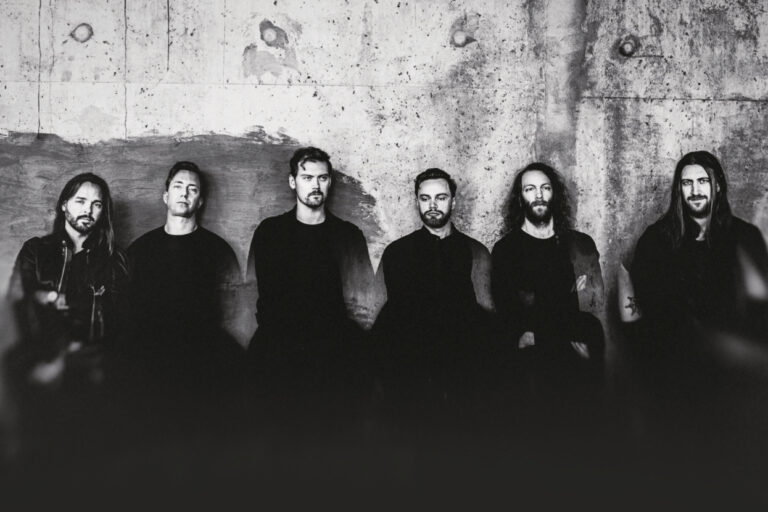Spurv

“The thing I’m admiring most in other bands and musicians, and striving to achieve myself, is an acute attention to composition and how albums function as wholes and not merely as collections of independent songs,” vocalist and main composer Gustav Jørgen Pedersen explains after //Prog// asks what sets Norwegian instrumental post-rock collective Spurv apart from their peers.
Pedersen continues to explain that Spurv exists in “a genre of music that has been very codified over the last decade or so,” alluding to the simplified oversaturation of bands of their nature. The difference for Spurv is they’ve found a space in which to exist almost uniquely, due to their hypnotic yet enthralling combination of post-rock and orchestral magnificence. “I think there is no reason to listen to the same chord progressions played over and over again,” Pedersen continues, “accompanied by the same sounds, and the same drum beats.”
He’s right, of course. There’s no finite combination of sounds, and as such there should be no oversaturation in the market. It happens simply due to imitation, which is claimed by some to be the highest form of flattery, but we were more intrigued by Spurv’s determination to be set apart from that crowd. After a stringent composition process which involves Pedersen’s initial writing, a follow-up co-composition with Eirik Ørevik Aadland (guitar) and Simen Eifring (trombone), comes the improvisation. Ole-Henrik Moe (cellist) and Kari Rønnekleiv (violinist) joined Spurv in the studio for their previous album //Myra// with “awesome” results from improvisation, Pedersen tells us. “This time, we asked Ole-Henrik and Kari again, as well as Inger Hannidsal (violinist) and Jørgen Bagheera Apeness (vibraphone),” he explains. The two were invited to the studio to simply “respond” to the music Spurv had already recorded.
“What we don’t do is jamming and making music together in the rehearsal space,” Pedesen says, “We simply can’t do it.” //Prog// probes gently as to why this might be. “We have tried, and it just becomes boring, standard music, easily identifiable as being in the style of Russian Circles, Explosions In The Sky, or MONO.” Far from being generic in composition, Brefjære also tells the story of four main “characters” – a birch tree, a mountain, a butterfly, and the wind engaging in conversation. “The birch tree asks the mountain why the wind blows – it is, in a sense, a symbolistic myth about the nature of human beings,” Pedersen tells us, “Where the different characters can be said to represent different timescales, from the relative short lifespan of an individual to the long-lived cultural phenomena that each and every one of us carry throughout our lives and deliver over to future generations”. Pedersen describes this as a “dramatic narrative” and it’s difficult to find flaws in his explanation.
Spurv has an impressive list of credits for Brefjære because, as Pedersen explains, “More is more”. Minimalist is never a word you could use to describe the Norwegian outfit, so fans of their eclectic, collaborative, maximalist approach will be pleased to learn that Spurv will be continuing work on a new record following their tour supporting This Will Destroy You and The Ocean. “We’re hoping it’ll take less than five years this time,” smiles Pedersen.
Prog File
LINE-UP: Gustav Jørgen Pedersen (guitar, main composer), Herman Otterlei (guitar), Hans-Jakob Jeremiassen (bass), Simon Ljung (drums), Eirik Ørevik Aadland (guitar) and Simen Eifring (trombone).
SOUNDS LIKE: A cascading wall of post-rock sound tinged with orchestral respendence that you cannot help but become engulfed by over and over.
CURRENT RELEASE : Brefjære is out now on Pelagic Records
WEBSITE: https://www.spurv.net/, https://spurv.bandcamp.com/
— Cheri Faulkner
From "Limelight - Spurv" Prog
Issue 145 Reprinted with permission.





